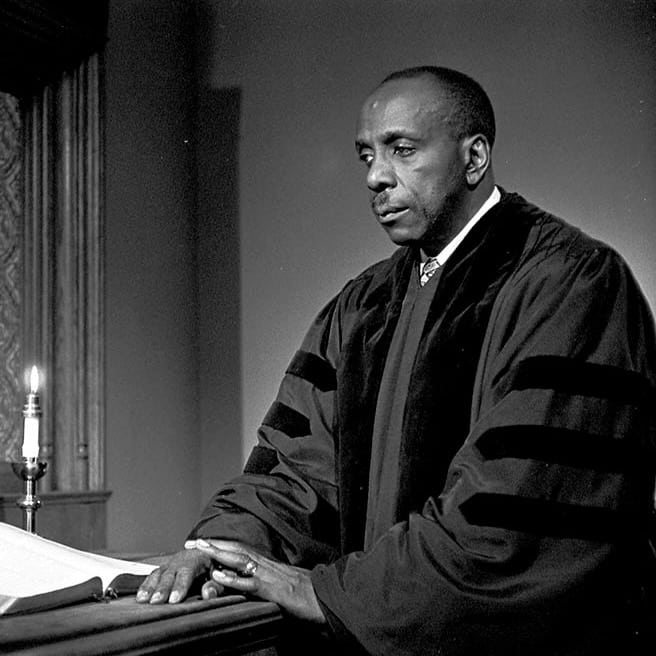
Howard Thurman
Howard Thurman was born in 1899 in Daytona Beach, Florida where he and his family lived in the all-Black community of Waycross. Much of Howard’s life journey was shaped by his grandmother, a former enslaved person. After Howard finished eighth grade, he had to leave home to attend one of the only three high schools in Florida for African Americans. Howard then went to Morehouse College, where he graduated as its valedictorian. Two years later, he became an ordained Baptist minister.
As a minister, Howard traveled extensively on missions. He was invited to India along with a delegation of African Americans. He and Mahatma Gandhi had extensive discussions about the experiences of the Black community in America. Gandhi introduced Howard to Satyagraha (“truth-force”), a strategy of active nonviolent resistance. When Gandhi and Howard had their final meeting, Gandhi reflected that he wished he would have focused more on non-violence as a key element in social change.
When Howard returned to America, he became involved in a number of ministerial positions where he was able to bring Black and White people together in worship. This was an example of a belief in crossing divides that guided his life.
Howard became a mentor of Martin Luther King Jr. and was influential in the development of King’s thinking for making progress on civil rights. In addition to Martin Luther King, Howard became a mentor for other civil rights leaders.
Some catalysts for social change do their work through those they mentor. Activists need mentors to help them think through their work. One of the twenty books Howard wrote, Jesus and the Disinherited, was especially influential to Martin Luther King Jr. in thinking about the civil rights movement he was leading.
Social change often requires a mix of skills. Some contributions are from thought leaders while others come from those who are involved directly in the change activities. Howard Thurman was a thought leader, a catalyst for others in the actions they would take.
Just imagine how the Civil Rights Movement in America might have gone without the thoughtful mentoring of Howard Thurman. Just imagine what might result should our Congress adopt a “crossing the divide” approach that Howard Thurman espoused. Just imagine how social justice reform could benefit from those who might provide thoughtful, behind-the-scenes guidance to the reformers. How might Thurman’s work speak to our own time and our movement toward social justice?
* * *
“Don’t ask yourself what the world needs. Ask yourself what makes you come alive, and go do that, because what the world needs is people who have come alive.”– Howard Thurman
This is part of our “Just Imagine” series of occasional posts, inviting you to join us in imagining positive possibilities for a citizen-centered democracy.



